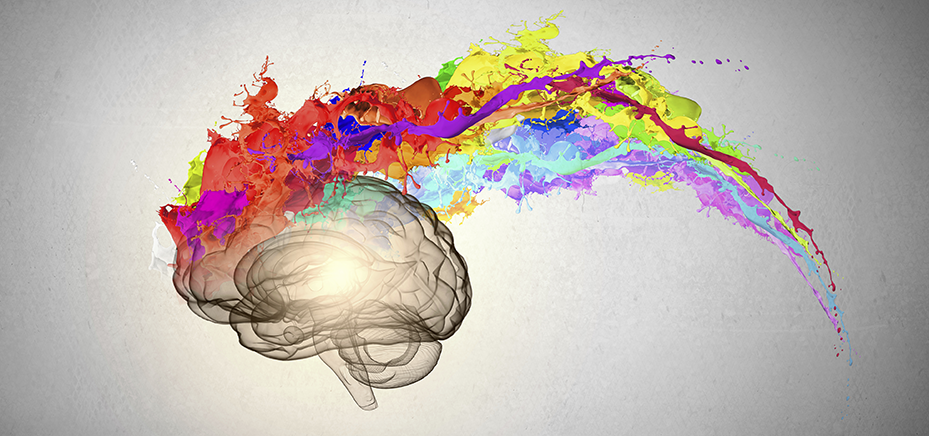
This post is part of our series of articles focusing on the mental health of young people – marking Children’s Mental Health Week 2016. It is written by a colleague from within the SSAT network, who has asked to remain anonymous.
Professor Tanya Byron’s presentation at the SSAT National Conference 2015 has lingered in my mind. In it, she highlighted the poor mental health of many young people, some of whom are almost catatonic with worry and anxiety due to their lack of ability to ‘separate their emotional brain from their rational brain’.
That last sentence, that’s the crux. Tanya told the audience an anecdote in which she was sitting in her car waiting for a group of teenagers who were slowly negotiating a zebra crossing. She considered that they might be purposely walking slowly, just to wind her up. For a split second her emotional brain thought ‘Go on, run them over. Cheeky kids.’ But within an instant her rational brain replied ‘No, that’s stupid. You don’t want to go to jail.’
I was 14 years old when I began to struggle to separate these two parts of my brain. Exactly the age at which the brain begins to go through the huge changes of individualisation. My emotional brain began to take over my everyday life, and what felt like every decision I made.
My rational brain took a back seat and watched as I became more anxious, more worried, and less sociable, less confident and less likely to pay attention in school.
My rational brain took a back seat and watched as I become more anxious, more worried, and less sociable, less confident and less likely to pay attention in school.
My anxiety would follow me out of the front door, trace my steps on the walk to school, and sit behind me in every class. It stopped me from concentrating, on anything.

I would spend most of the school day terrified of something embarrassing happening to me in front of my peers. Gymnastics in PE? I was terrible at gymnastics – I was terrified. Maths after lunch? Maths was my weakest subject – I was terrified. All rationality had left my mind and I was in a constant battle with every single thing I did. It was getting in the way of my life. That’s a mental illness.
I can say this now as I am a year into a new way of thinking differently, of engaging my rational brain and using it to navigate everyday life. Anxiety was my uninvited and unwanted guest for 15 years before a loved one suggested that an appointment with a cognitive therapist might help. It was the best decision I’ve ever made.
Anxiety was my uninvited and unwanted guest for 15 years before a loved one suggested that an appointment with a cognitive therapist might help. It was the best decision I’ve ever made.
I used to go through horrible waves of insomnia, depression, self-loathing – all are issues linked to anxiety. I now sleep well and can identify when I might be starting to feel down. And crucially, I can do things to stop myself feeling down.
I am now able to pinpoint four or five crucial aspects of my child and teenage life that contributed to my poor mental health. But instead of going through them (you can easily find possible triggers after a quick search online), I want to highlight a couple of things that we can all do as adults to help young people to build emotional resilience and engage their rational brain.
Time and space
Young people have to be given the time and space to think about thinking. I remember my only outlet for this was a pen pal I had in Cyprus (an old school friend who emigrated) who would have to endure letter upon letter of my anxiety-induced soul-searching waffle.
Who was I? Why am I three different versions of myself to three different groups of people? Does that matter? Is that normal? Do people like version 1, 2 or 3? Or none? This I now know is part of the aforementioned individualisation of the brain. If I had known this at the time, it would have made an enormous difference to the quality of my mental health. I would have understood my brain.

Listen better
Listen better to young people. I once told a teacher I was sad and the reply I got was ‘Why are you sad? You have clean clothes, a house to live in and a free education. You’re using it as an excuse.’ That was the first time I tried to reach out to someone, and the response I got made it the last for a very long time. If a young person tells you they are sad, please listen.
If you know a young person who is struggling to concentrate – don’t just assume that they’re hyper-active or have an attention deficit disorder. My anxiety would mean that my brain would flicker between 5/10/15 things every minute of the day. Of course this was fatal in class. I couldn’t concentrate on a single task without having dozens of other thoughts whirling around in my head.
If you know a young person who is struggling to concentrate – don’t just assume that they’re hyper-active or have an attention deficit disorder. My anxiety would mean that my brain would flicker between 5/10/15 things every minute of the day.
Physical activity
Promote, promote, promote the importance of physical activity. My one release at school was playing football on the field at lunchtime. For those 45 minutes I was free – the only thought on my mind was who I was going to pass the ball to next.
Over the past year of mindful thinking I’ve realised that there was a reason I was always the first on the field, and the last off. This was the one area of my life in which I had enough emotional resilience to try new things and fail.
By not getting the support I needed during my teenage years, my poor mental health continued to deteriorate at university and into my 20s. Despite my love of football, I would be sick before every single game for the university football team, due to the lack of ability to rationalise my thoughts.
I struggled to pay attention in lectures, even when the content was of great interest to me. I achieved a modest 2:2 and after graduating I struggled to find any kind of structure to my life.
Over the past year of mindful thinking I’ve realised that there was a reason I was always the first on the field, and the last off. This was the one area of my life in which I had enough emotional resilience to try new things and fail.
I met my partner four years ago and she has turned my life around. With a big interest in how the brain works, she began to notice aspects of my thought processes that suggested I could improve my emotional resilience.
Cognitive behavioural therapy (CBT)
After a series of brief meetings with a cognitive therapist, the health of my mind drastically improved. I am now able to rationalise my thoughts and I understand my brain like I never thought I would. I credit CBT with ridding me of decade-long insomnia; of preventing me from sliding into yet another wave of depression; of helping me to remain calm in situations that previously would have rendered me catatonic with fear. And, most importantly, of helping me to understand my brain.
I lost 15 years of my life to anxiety. I had no warning that my brain would change, I had no support while it was changing, and I didn’t understand how it had changed. How on earth can we expect young people to be successful in life when they don’t have a healthy relationship with their own brain?
There could be thousands of my 14 year-old self sitting in a classroom right now, their minds wandering and their stomachs full of butterflies. It is our responsibility to help them understand why they feel that way, and what they can do to ensure it doesn’t restrict them from living their life.
Only then can we expect young people to build emotional resilience and be strong enough to overcome life’s challenges.
Read Can cognitive behavioural therapy really change our brains?
Read Mind.org.uk’s information and advice on cognitive behavioural therapy.
